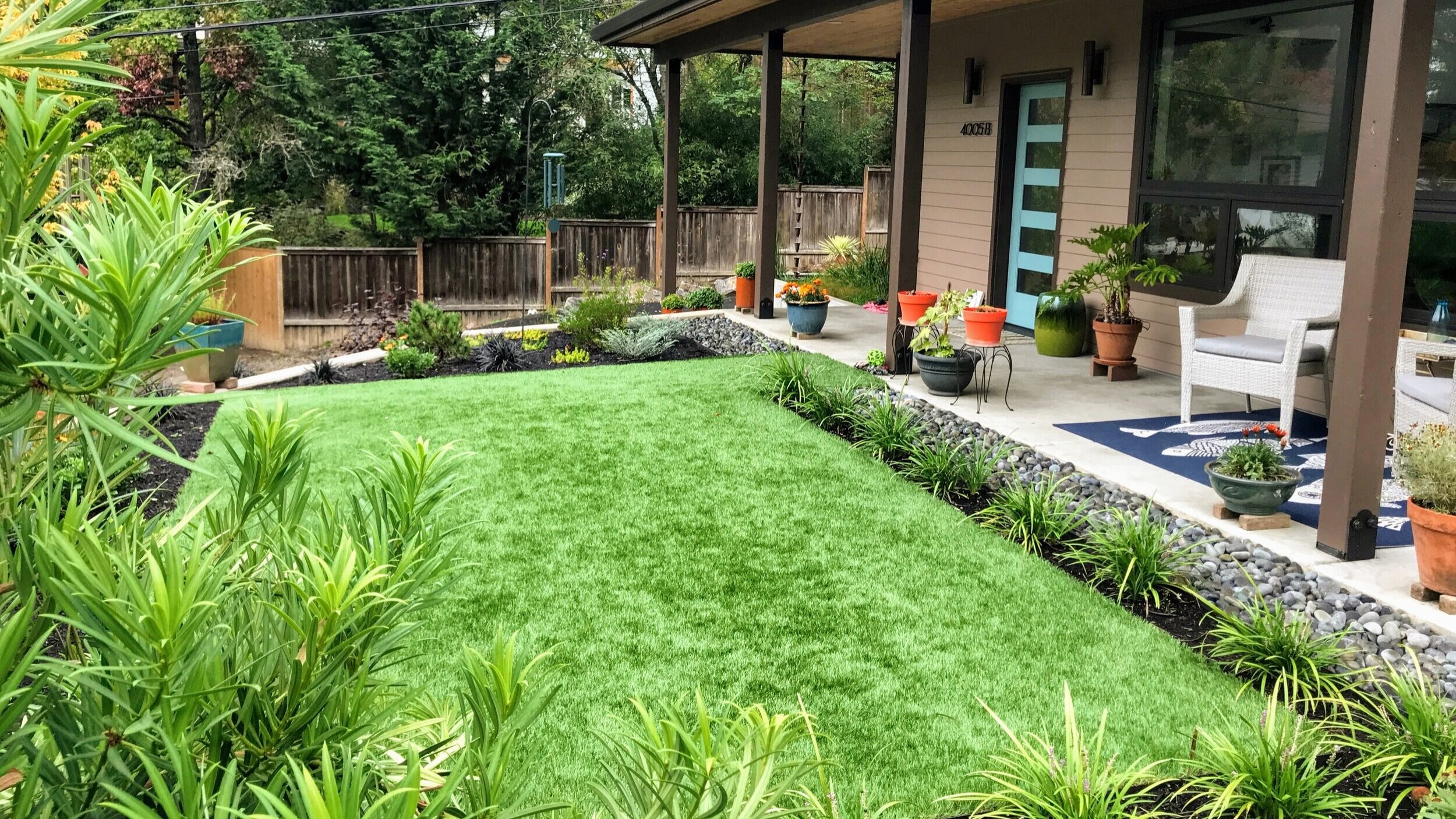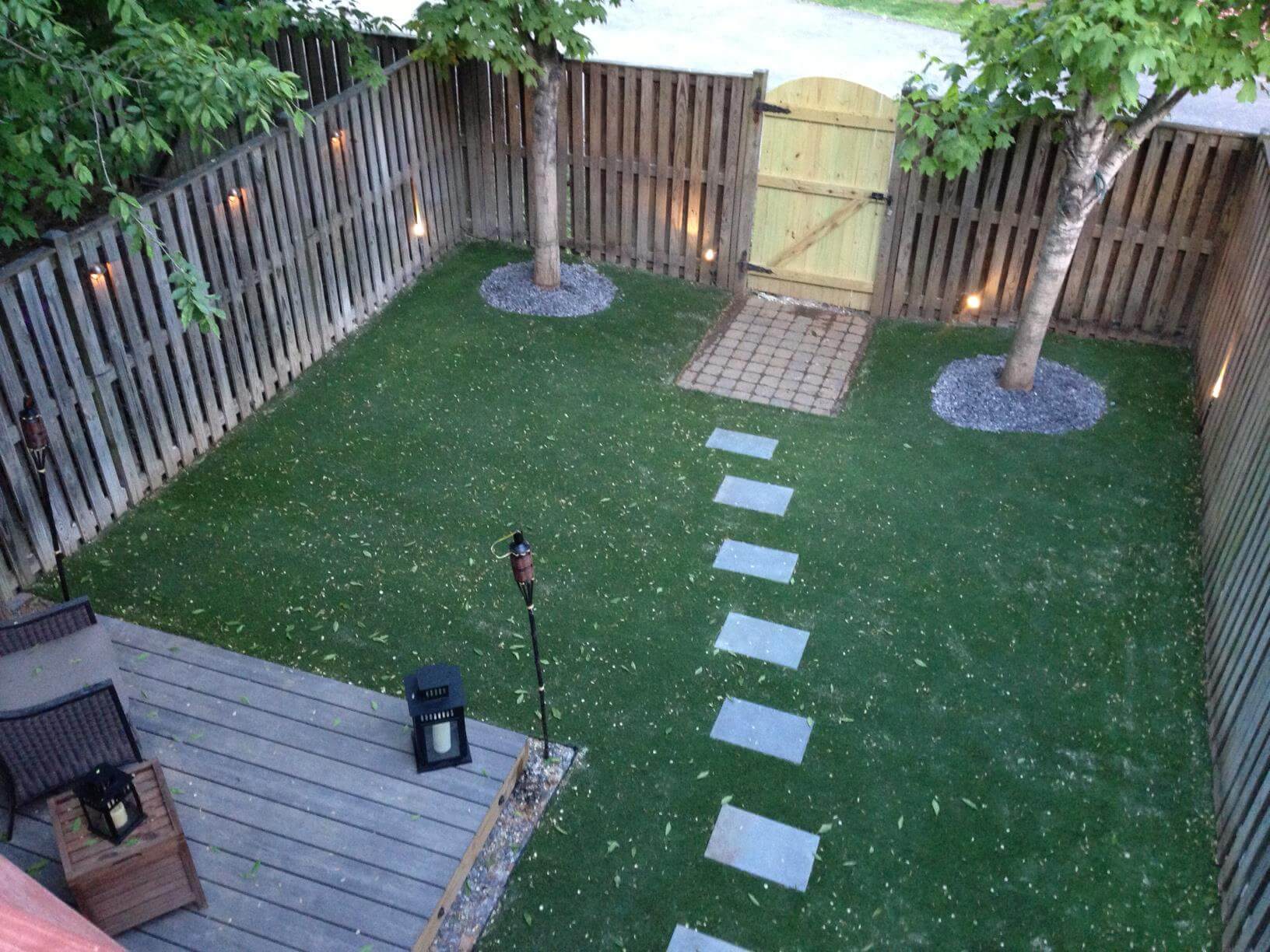Top Factors to Think About Artificial Lawn for a Lush and Low-Maintenance Yard
As home owners progressively look for sustainable remedies for outside spaces, synthetic grass provides an enticing choice to conventional yards. Its ability to preserve a lively appearance year-round without the burdens of mowing, watering, or chemical treatments makes it a sensible choice for those intending to lower maintenance efforts. In addition, the ecological advantages, consisting of considerable water conservation and lowered reliance on chemicals, align with modern environmental values. The benefits expand past mere looks and sustainability; exploring the diverse effects of artificial grass exposes a thorough technique to lawn management that benefits much deeper factor to consider.
Year-Round Plant
One of the most considerable advantages of artificial lawn is its capability to supply year-round greenery, despite environment conditions. House owners usually encounter difficulties in preserving a dynamic yard because of seasonal modifications, droughts, or hefty rainfall. Synthetic turf removes these worries, making certain a consistently lush look throughout the year.
This synthetic alternative is engineered to stand up to diverse climate circumstances, from scorching summertime heat to cold winter season temperatures. Unlike all-natural lawn, which might brownish or come to be irregular throughout severe problems, fabricated lawn keeps its vivid color and texture, enhancing the visual allure of any type of landscape.
Additionally, man-made grass is resistant to bugs and illness that generally impact all-natural yards. This resilience adds to its enduring elegance, as there is no demand for chemical therapies or plant foods that can be unsafe to the atmosphere. Property owners can delight in the aesthetic advantages of a properly maintained yard without the intermittent obstacles posed by natural turf treatment.
Lowered Maintenance Initiatives
Fabricated yard dramatically minimizes upkeep efforts, permitting house owners to delight in a beautiful grass without the time-consuming tasks connected with all-natural turf treatment. One of one of the most notable advantages of artificial turf is the elimination of regular mowing. Without any need for a lawnmower, property owners save both time and the price of upkeep related to this tools.

Cleaning up man-made yard is uncomplicated; a basic rinse with a hose or the occasional cleaning to remove debris is usually sufficient - artificial grass. This ease of treatment enables home owners to invest more time enjoying their outside areas as opposed to laboring over them. In summary, the decreased upkeep initiatives associated with man-made yard make it an appealing selection for those seeking an attractive, problem-free lawn
Water Conservation Conveniences
The substantial reduction in upkeep efforts connected with synthetic yard extends to water preservation, making it an environmentally friendly option for house owners. Traditional yards require considerable amounts of water to stay dynamic and lavish, usually resulting in too much water usage, especially in deserts. In contrast, artificial lawn gets rid of the requirement for normal watering, substantially minimizing the general water consumption in your lawn.
By selecting artificial turf, property owners can preserve hundreds of gallons of water every year. This change not only advantages private houses yet additionally adds to more comprehensive ecological campaigns targeted at minimizing water waste. In areas experiencing water shortage, the fostering of man-made yard can play a substantial duty in mitigating the effects of drought and making certain that beneficial water sources are utilized a lot Learn More more successfully.
Furthermore, the installment of synthetic grass can help reduced community water demand, benefiting the community overall. With expanding awareness of environmental problems, picking synthetic yard functions as a proactive action in the direction of lasting landscape design, aiding to maintain all-natural water sources while keeping a visually pleasing exterior room (turf installation). In recap, fabricated lawn presents a compelling remedy for water preservation, straightening environmental responsibility with contemporary landscaping needs

Bug and Allergy Decrease
A considerable advantage of mounting synthetic turf is its capability to lower parasites and irritants in outside spaces. Standard lawn yards commonly serve as reproducing grounds for insects such as insects, ticks, and ants, which can create pain and health dangers for households and pets. On the other hand, fabricated yard eliminates the organic product that brings in these insects, therefore substantially lowering their populaces in your lawn.
Moreover, all-natural lawn can nurture mold, pollen, and other allergens, which can activate allergic reactions and respiratory system problems for delicate individuals. Artificial grass provides a cleaner environment, decreasing the potential for allergenic responses. Unlike all-natural lawn, synthetic grass does not produce pollen, making it an outstanding choice for allergic reaction sufferers seeking to appreciate their exterior rooms without the threat of flare-ups.
Additionally, the absence of soil in man-made lawn suggests there is much less dust and dust, more reducing air-borne irritants. This low-maintenance alternative not just boosts the visual appeal of your lawn yet additionally promotes a healthier outdoor setting, permitting families to enjoy their yards without the constant concern of irritants and pests. Thus, man-made lawn is a tactical choice for those prioritizing comfort and health and wellness in their outside space.
Long-Term Cost Cost Savings
Spending in synthetic turf can lead to significant long-lasting expense savings for homeowners. Fabricated turf eliminates the demand for routine lawn upkeep costs, such as mowing, fertilizing, and watering.
In addition, the durability of synthetic turf further boosts its cost-effectiveness. Most high-grade artificial yard products can last 15 to 25 years with marginal maintenance, reducing the demand for substitute or considerable repairs. In comparison, all-natural yard might need frequent reseeding and routine treatment, which can quickly accumulate in expenses.
Utility cost savings are another important aspect. Home owners can anticipate to see lower water costs, as synthetic turf does not require watering. Additionally, the reduction in lawn treatment services can liberate beneficial time and resources, enabling house owners to allocate their spending plans somewhere else.
Final Thought
In summary, artificial yard presents various advantages for homeowners looking for a vivid and low-maintenance landscape. Its capability to supply year-round plant, paired with reduced upkeep efforts he has a good point and significant water conservation, makes it an attractive choice. Furthermore, the reduction of bugs and allergens adds to a much healthier exterior setting. Inevitably, the long-lasting price savings related to synthetic grass solidify its standing as a practical and lasting service for look these up boosting outdoor spaces.
Fabricated turf dramatically decreases maintenance initiatives, enabling house owners to enjoy a pristine yard without the time-consuming jobs connected with all-natural turf care.The substantial decrease in upkeep efforts associated with man-made yard extends to water preservation, making it an ecologically friendly choice for house owners. In contrast, man-made lawn removes the need for normal watering, dramatically minimizing the total water consumption in your lawn.
In areas experiencing water shortage, the adoption of synthetic lawn can play a significant duty in alleviating the results of drought and ensuring that important water resources are made use of much more successfully.
With growing awareness of ecological issues, selecting fabricated turf serves as a positive step towards sustainable landscape design, assisting to protect all-natural water resources while keeping an aesthetically pleasing outdoor room.